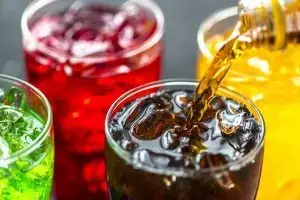- Home
- Medical news & Guidelines
- Anesthesiology
- Cardiology and CTVS
- Critical Care
- Dentistry
- Dermatology
- Diabetes and Endocrinology
- ENT
- Gastroenterology
- Medicine
- Nephrology
- Neurology
- Obstretics-Gynaecology
- Oncology
- Ophthalmology
- Orthopaedics
- Pediatrics-Neonatology
- Psychiatry
- Pulmonology
- Radiology
- Surgery
- Urology
- Laboratory Medicine
- Diet
- Nursing
- Paramedical
- Physiotherapy
- Health news
- Fact Check
- Bone Health Fact Check
- Brain Health Fact Check
- Cancer Related Fact Check
- Child Care Fact Check
- Dental and oral health fact check
- Diabetes and metabolic health fact check
- Diet and Nutrition Fact Check
- Eye and ENT Care Fact Check
- Fitness fact check
- Gut health fact check
- Heart health fact check
- Kidney health fact check
- Medical education fact check
- Men's health fact check
- Respiratory fact check
- Skin and hair care fact check
- Vaccine and Immunization fact check
- Women's health fact check
- AYUSH
- State News
- Andaman and Nicobar Islands
- Andhra Pradesh
- Arunachal Pradesh
- Assam
- Bihar
- Chandigarh
- Chattisgarh
- Dadra and Nagar Haveli
- Daman and Diu
- Delhi
- Goa
- Gujarat
- Haryana
- Himachal Pradesh
- Jammu & Kashmir
- Jharkhand
- Karnataka
- Kerala
- Ladakh
- Lakshadweep
- Madhya Pradesh
- Maharashtra
- Manipur
- Meghalaya
- Mizoram
- Nagaland
- Odisha
- Puducherry
- Punjab
- Rajasthan
- Sikkim
- Tamil Nadu
- Telangana
- Tripura
- Uttar Pradesh
- Uttrakhand
- West Bengal
- Medical Education
- Industry
Sugar-sweetened beverages contribute to increased risk of IBD: Study

China: In a new study conducted by Tian Fu and colleagues, the findings suggest that drinking sugar-sweetened beverages increases the risk of inflammatory bowel disorders (IBD) more than drinking artificially sweetened beverages or drinking natural juices. The data from this study was published in Alimentary Pharmacology & Therapeutics.
Although high-sugar dietary habits have been linked to inflammatory bowel disorders, less is known about the relationships between various beverage kinds and IBD risk. The purpose of this study was to investigate the relationships between the consumption of naturally sweetened beverages, artificially sweetened beverages, and sugar-sweetened beverages with the risk of IBD.
121,490 people in the UK Biobank who were IBD-free at enrollment were a part of this cohort study. Repeated 24-hour diet recalls between 2009 and 2012 were used to determine beverage intake. To calculate the hazard ratios (HRs) and 95% confidence intervals (CIs) for relationships between beverage consumption and the risk of IBD, Cox proportional hazard models were employed.
The key findings of this study were as follows:
1. 510 incident IBD cases were recorded over a mean (SD) follow-up of 10.2 years, including 143 cases of Crohn's disease (CD) and 367 cases of ulcerative colitis (UC).
2. Participants who consumed more than one unit per day of sugar-sweetened beverages had a considerably greater risk of IBD compared to non-consumers, but the trend was not statistically significant.
3. While UC did not show any significance, the CD did.
4. Natural juices and the use of artificially sweetened beverages did not appear to be significantly correlated.
In conclusion, this study revealed a link between excessive consumption of sugar-sweetened beverages and an increased risk of IBD, as opposed to artificially sweetened beverages or natural juices. In order to prevent IBD, especially CD, the findings, if proven causal, indicate reducing the consumption of sugar-sweetened beverages.
Reference:
Fu, T., Chen, H., Chen, X., Sun, Y., Xie, Y., Deng, M., Hesketh, T., Wang, X., & Chen, J. (2022). Sugar‐sweetened beverages, artificially sweetened beverages and natural juices and risk of inflammatory bowel disease: a cohort study of 121,490 participants. In Alimentary Pharmacology & Therapeutics. Wiley. https://doi.org/10.1111/apt.17149
Neuroscience Masters graduate
Jacinthlyn Sylvia, a Neuroscience Master's graduate from Chennai has worked extensively in deciphering the neurobiology of cognition and motor control in aging. She also has spread-out exposure to Neurosurgery from her Bachelor’s. She is currently involved in active Neuro-Oncology research. She is an upcoming neuroscientist with a fiery passion for writing. Her news cover at Medical Dialogues feature recent discoveries and updates from the healthcare and biomedical research fields. She can be reached at editorial@medicaldialogues.in
Dr Kamal Kant Kohli-MBBS, DTCD- a chest specialist with more than 30 years of practice and a flair for writing clinical articles, Dr Kamal Kant Kohli joined Medical Dialogues as a Chief Editor of Medical News. Besides writing articles, as an editor, he proofreads and verifies all the medical content published on Medical Dialogues including those coming from journals, studies,medical conferences,guidelines etc. Email: drkohli@medicaldialogues.in. Contact no. 011-43720751


